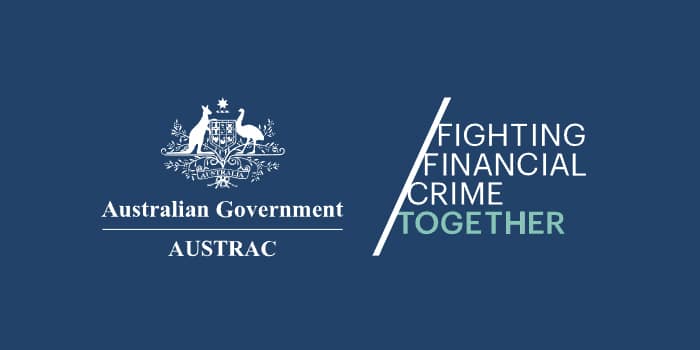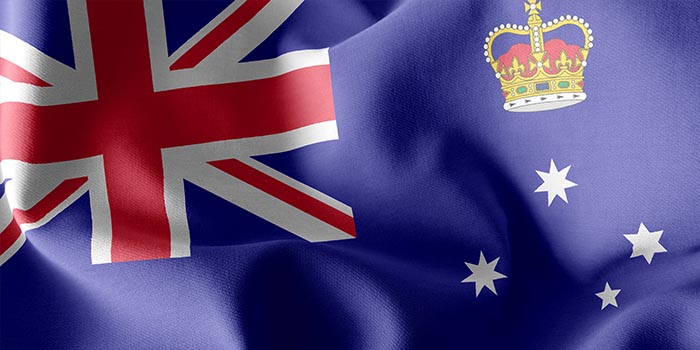- Casino
- By State
- Alabama
- Alaska
- Arizona
- Arkansas
- California
- Colorado
- Connecticut
- Delaware
- Georgia
- Florida
- Hawaii
- Idaho
- Illinois
- Indiana
- Iowa
- Kansas
- Kentucky
- Louisiana
- Maine
- Massachusetts
- Maryland
- Michigan
- Minnesota
- Mississippi
- Missouri
- Montana
- Nebraska
- Nevada
- New Hampshire
- New Jersey
- New Mexico
- New York
- North Carolina
- North Dakota
- Ohio
- Oklahoma
- Oregon
- Pennsylvania
- Rhode Island
- South Carolina
- South Dakota
- Tennessee
- Texas
- Utah
- Vermont
- Virginia
- Washington
- West Virginia
- Wisconsin
- Wyoming
- By State
- Slots
- Poker
- Sports
- Esports
Fact-checked by Velimir Velichkov
Aussie Gambling Syndicate Exploits Banks, Bookmakers
The malpractice of using third-party identities by a gambling syndicate may be pushing betting companies and banks into regulatory violations

In the digital age, tracing financial transactions and identifying customers can be easy but the process doesn’t come without challenges. Bookmakers in Australia, similar to other parts of the globe, adhere to know-your-customer (KYC) and anti-money laundering (AML), among other regulations, especially when accepting registrations from new users.
Yet, malpractice by gambling groups that are reportedly purchasing IDs belonging to third parties to open betting accounts is gaining speed across the country. Such unlawful activities may put both banks and bookmakers in hot water, considering that registering an account on behalf of another person is considered unlawful.
Account Muling Affects Banks, Sports Betting Companies
As suggested in a new report, bookmakers and banks may have been victims of such fraudulent actions by a gambling syndicate that creates accounts on behalf of people who agree to sell their personal information. Selling your identity online for a couple of hundreds or even thousands of dollars is not only unlawful but incredibly dangerous.
Still, this doesn’t stop Australians who want to earn an extra buck, and the malpractice may have dire consequences not only for those who sell their information but for financial institutions and betting providers who may be pushed into AML and KYC breaches, a report by the Guardian Australia warns.
The publication confirmed seeing documents revealing that an unnamed gambling group agreed buy IDs from “desperate men” for AU$1,000 ($650) and then created both bank and wagering accounts in their names. Subsequently, the syndicate completed deposits via cash and gambled with nine different betting companies.
One of the many betting accounts was with Sportsbet, a major operator in the market in Australia. Registering with the identity of another person enabled the gambling syndicate to wager in their name. While there was no way to initially catch the culprit, Sportsbet closed the person’s account after it identified that an “ID theft has occurred.”
Breaches May Be Subject to Civil Penalties
The malpractice caught the attention of regulatory bodies. A spokesperson for the federal attorney general’s department confirmed that businesses that haven’t established KYC and AML policies to identify their customers may be breaching the obligations. The same spokesperson warned that such businesses may be subjected to “significant civil penalties.”
However, what’s particularly concerning in such cases is that the malpractice remains undetected until after the gambling syndicate has completed hundreds of transactions. This means that while bookmakers and banks may adhere to their KYC and AML obligations, there’s no way for them to know if a player is using a third-party identity, considering that such a player can deliver every document required to create an account.
Reportedly, gambling syndicates engage in the practice because bookmakers would sometimes ban their accounts or restrict them due to frequent winnings and a high volume of wagers. Still, there’s no way to know if those syndicates aren’t reselling the IDs they have purchased to third parties, or using them for further unlawful activities.
Related Topics:
Jerome brings a wealth of journalistic experience within the iGaming sector. His interest in the industry began after graduating from college, where he regularly participated in local poker tournaments. This exposure led him to the growing popularity of online poker and casino rooms. Jerome now channels all the knowledge he's accrued to fuel his passion for journalism, providing our team with the latest scoops online.
Previous Article

Industry
November 27, 2024
BC.Game Faces Licensing Threat Amid Bankruptcy Controversy

Must Read
More Articles



Industry
July 8, 2025
Trump’s Gambling Tax Cap Draws Divided Opinions

Legal
July 7, 2025
Former SkyCity Executives Sued Over AUSTRAC Penalty














